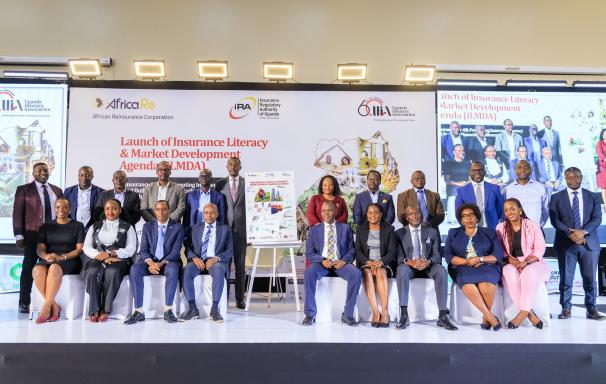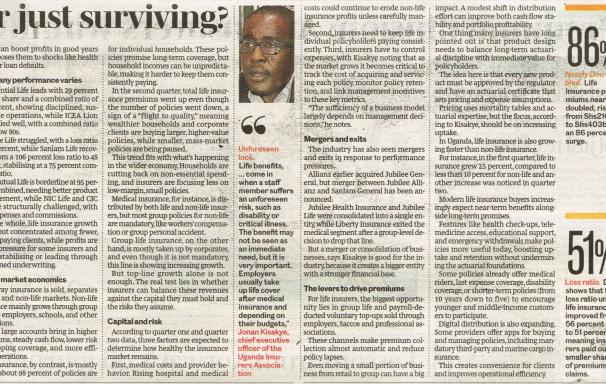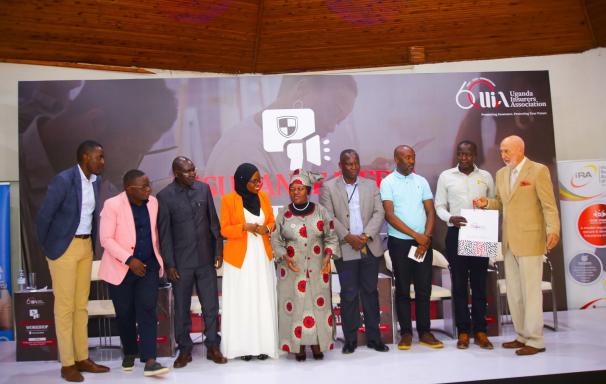Ruth Namuli, the newly appointed Chairperson of the Uganda Insurers Association (UIA) Executive Committee, has committed to building on the successes of her predecessors to enhance insurance penetration and promote overall sector growth.
The official handover took place last Friday during the CEO Club Cocktail at UIA’s headquarters in Kampala.
Namuli, who has over 16 years of experience in the insurance industry, currently serves as the Chief Executive Officer of Sanlam General Insurance Company Limited.
Namuli assumes this role at a time when insurance penetration in Uganda remains limited, affecting only a small portion of the population and stagnating at less than 1% for several years.
This low penetration rate has been attributed to factors such as limited awareness of available insurance products, inadequate use of technology, and a lack of innovative product offerings.
Additionally, the majority of the population faces constrained income streams, making it difficult to prioritize spending on insurance.
Namuli succeeds Latimer Mukasa, whose six-year term has come to an end. Mukasa will continue to contribute to the UIA Executive Committee as an ex-officio member.
“We intend to continue leveraging existing initiatives by harnessing technology and digital solutions to drive product development. We will also focus on strengthening collaboration and partnerships within the sector, as well as engaging in Environment Social Governance (ESG) issues to ensure global competitiveness and sustainability,” Namuli stated.
In addition, Namuli plans to address the issue of fraudulent claims in the industry by working closely with the regulator. One proposed measure is the establishment of a special reference bureau to combat this threat.
Paul Muhame, the Chairman of the Insurance Brokers Association of Uganda, expressed appreciation for the outgoing leadership under Latimer Mukasa, acknowledging their efforts in laying a strong foundation for the growth of the insurance industry.
He also voiced confidence in Ruth Namuli’s capability to further elevate the association, praising UIA’s effective publicity campaigns aimed at promoting insurance.
Muhame emphasized the need for insurance CEOs to collaborate with the regulator to continuously improve customer satisfaction and encourage the uptake of insurance products.
Jonan Kisakye, the Chief Executive Officer of the Uganda Insurers Association, welcomed the new leadership and pledged to seek strategic guidance to ensure the sustainable management of the association.
With Uganda’s Oil and Gas Industry entering a critical development phase, particularly in the upstream operations, the Insurance Consortium on Oil and Gas Uganda (ICOGU) is now focusing on strategic capacity building to grow premiums.
According to Jonan Kisakye, CEO of the Uganda Insurers Association, the oil and gas sector is relatively new in Uganda, and the risks associated with it are substantial.
"The sector poses significant risks that could expose the insurance industry to huge losses if the players lack adequate knowledge to insure these complex operations," Kisakye explained.
In the oil-rich Bunyoro region, where developments are intensifying in the CNOOC-operated Kingfisher field and TOTAL’s Tilenga Area, the need for robust insurance coverage is becoming increasingly evident.
Projects such as the East African Crude Oil Pipeline (EACOP), currently in the Engineering, Procurement, and Construction (EPC) phase, and the refinery project pending a Final Investment Decision (FID) with UAE’s Alpha MBM Investments LLC, are high-risk endeavors requiring specialized insurance solutions.
Ibrahim Lubega Kaddunabbi, CEO of the Insurance Regulatory Authority, expressed satisfaction with the rising insurance premiums in the sector.
"I am pleased to report that regulations mandate all International Oil Marketing Companies (IOCs) to source insurance locally. To strengthen our industry, sector players have formed a consortium to approach these insurance needs jointly," Kaddunabbi said during a recent insurance training session in Kampala.
While the sector recorded premiums of up to $13 million in 2023 from a total investment of USD 20 million, the Consortium's leadership emphasizes that building sector-specific skills is more crucial than simply retaining premiums.
Kisakye stressed the importance of expertise, particularly in handling large-scale projects.
"Consider the EACOP, a $4 billion project insuring it alone would greatly expose the balance sheet of any individual insurer. It's vital that we equip ourselves with the necessary skills to insure the IOCs effectively," Kisakye noted.
Insurers have also observed a significant rise in microinsurance, reflecting increased appreciation of insurance services within the business community.
"Total premiums in microinsurance used to be less than 500 million shillings annually, but in just the first six months of 2024, we've already written 500 million shillings in premiums. This represents about 0.6% of total non-life insurance premiums, which is encouraging," Kaddunabbi added.
Experts highlight that the insurance sector, which contributes approximately 530 billion shillings in taxes and employs more than 1,500 people, is poised for further growth as more businesses in the oil and gas industry and beyond take up insurance services.
Source: The Executive Watch (click here to view)



